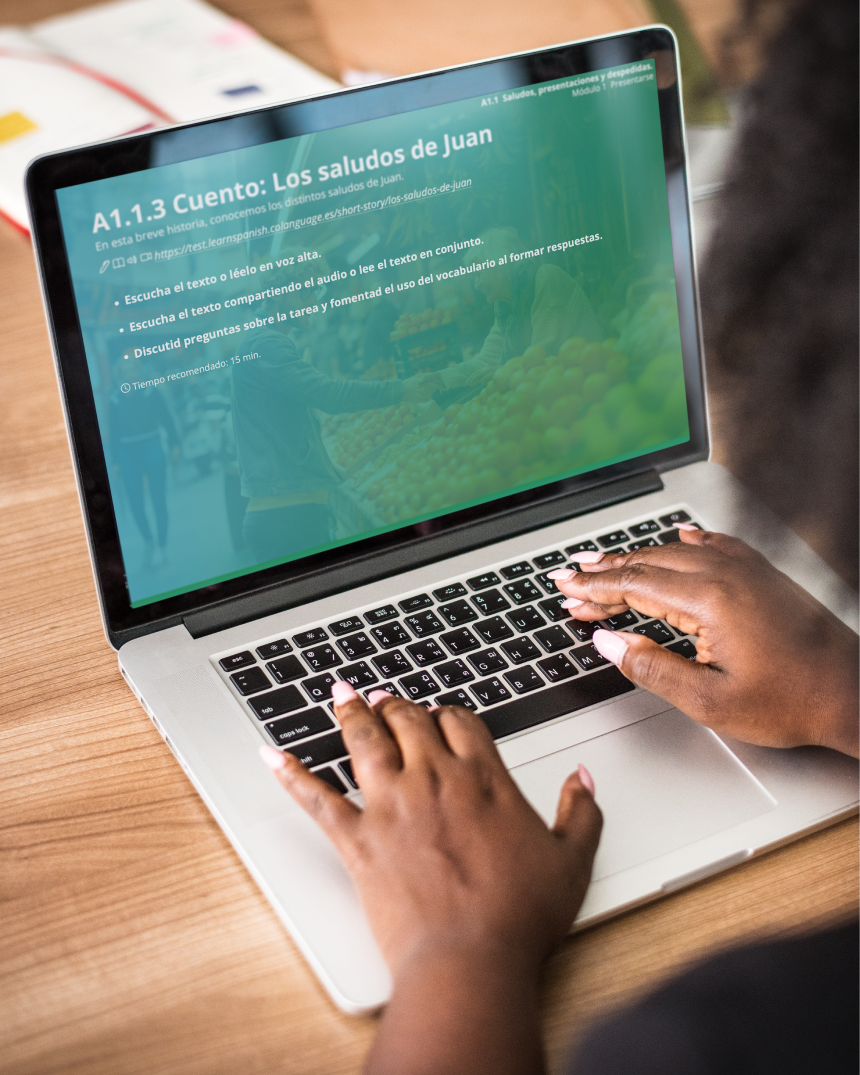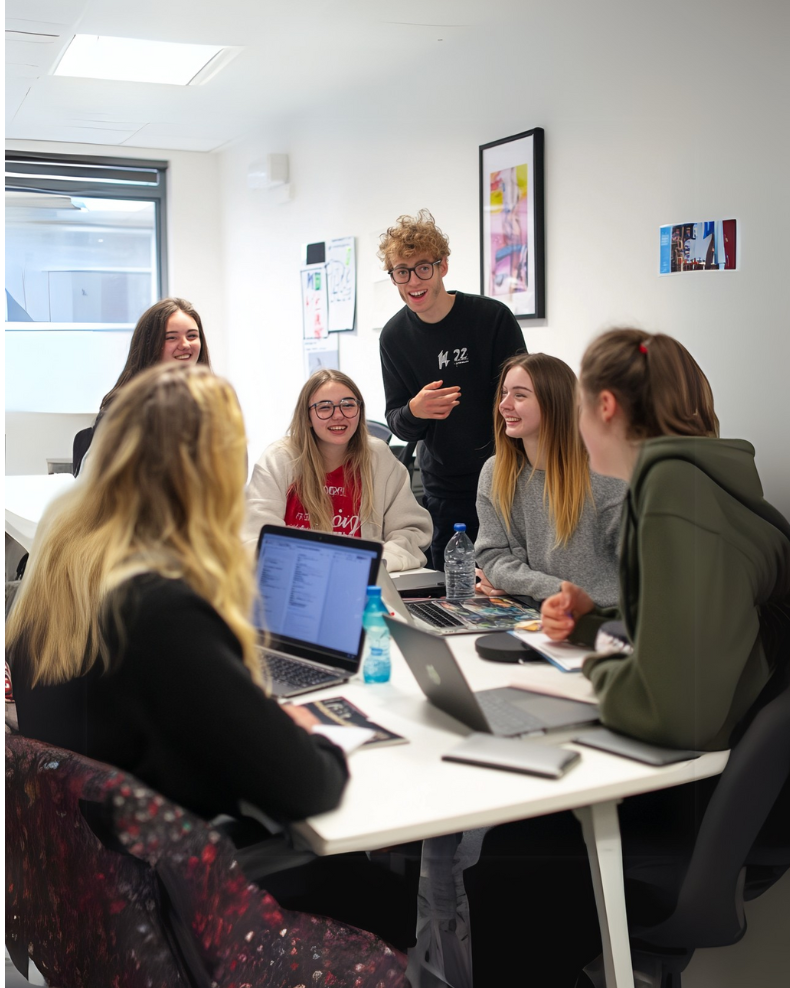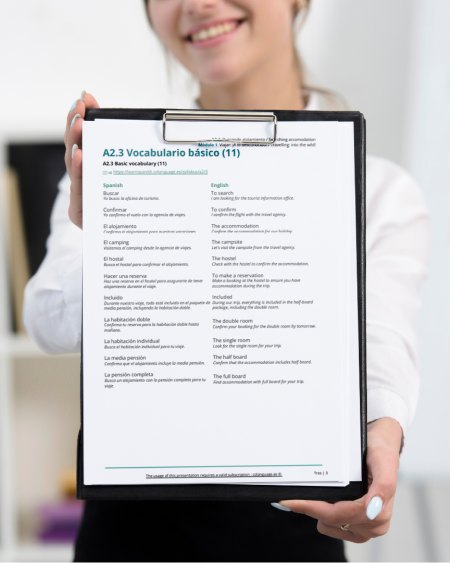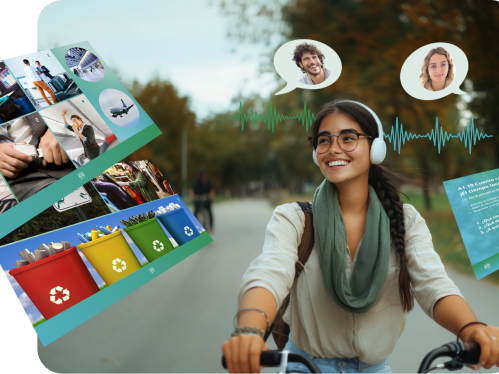


Educational Vision
Language learning works best when you bring together speaking, feedback, and self-study.





1. Speak, speak, speak
Every lesson is based on real-life situations, and you'll talk. A lot!
2. Personal learning plan
We track your difficulties, and adapt your learning plan to your interests.
3. Structured learning materials
It is essential to have a solid course structure and a recommended learning plan. From A1 till C2.

You need a personal teacher who knows you.
Every student is appointed a personal teacher who knows you and adapts your materials.
You need to train real situations.
We focus on conversation and real-life situations to help you become independent quickly.


You need a clear learning plan
We structure each language with clear grammar and vocabulary lists per CEFR level in our syllabus materials.
Additionally, we measure your level and make a course plan based on your difficulties and interests.
Immersive learning
We prioritize real-life immersion like websites, news articles, songs, online platforms,... to help you experience the language in (cultural) context.
You’ll find also example phrases and listening materials that help you train vocabulary with real conversations.


You need to have fun.
Yes, our courses are complete and structured but we also make sure your lessons are social and you have fun while learning.
Our learning goals
All our learning materials are conversational but structured according to CEFR and language-specific guidelines. All about our learning materials.
Below you find a summary of what you should master per CEFR level to obtain a level certificate. Do not worry, we implement those theoretical guidelines in fun and interactive exercises.
| CEFR Level | Practical situations | coLanguage Method | Learning materials | Grammar Focus | Verb Tenses |
|---|---|---|---|---|---|
| A1: Students need structured guidance with high-frequency vocabulary in daily situations to develop quickly confidence. |
|
+/-600 new words |
|
|
|
| A2: A2 learners need to understand context, improve sentence formation, expand vocabulary and train active listening and speaking. |
|
+/-800 new words |
|
|
|
| B1: The step from A2 from B1 is the highest as it require independence and fluency with exposure to real-world interactions. |
|
+/-2000 new words |
|
|
|
| B2 |
|
+/-4000 new words |
|
|
|
Our learning plans
Find our learning guidelines per language.Our teacher team
Our teachers and partner schools all have teaching degrees or have a proven history of language teaching.

This evaluation I write in English so that also people from other countries than Germany can read. Please ignore the automated Google translation and read the original English text!
We have had a very successful time with Carla. Our son learned very much Portuguese during his time with Carla. After 46 lessons he has entered Portuguese school now. Obviously, the training has not brought him to fluency, learning a language takes very much time and effort, but despite the little effort he has put into learning aside of the lessons themselves (saying he was not good about homework), he is able to basically follow school now. We are very much endebted to Carla to have opened this access to the Portuguese school system for him and us. Carla is a very patient teacher. So even though it did not seem too hard, progress was steady and effective. This is probably the best format to learn a language, and it particularly suits the needs of a child very much.
I can do no more than very warmly and enthousiastically recommend Carla as a language teacher of Portuguese.
- 5/5
for Carla Mariana L.

150+ Verified Teachers
Carla Mariana L.
- 5/5
Ekaterina V.
- 5/5
Mariana D.
- 5/5
4.75/5
Based on 1537 ratings
Katja is a great person and a great teacher. She helps me a lot with my English and it's always great fun. Katja lessons are a very important point of the week for me, then you have to be lucky enough to have such a teacher. LG Barbara
- 5/5
for Ekaterina V.









